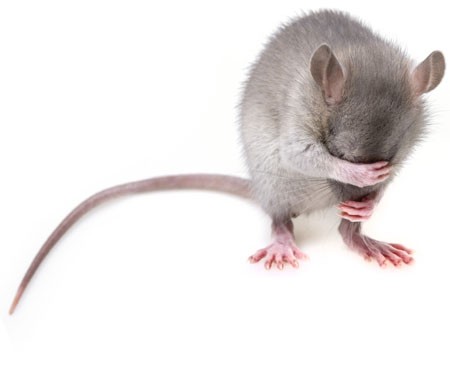Mice Who Witness Another Being Attacked Show Depression-Like Behaviors
 Stress is a risk factor for depression and other mental health disorders. Researchers are currently working to clarify how stress leads to depression, anxiety, and post-traumatic stress disorder, and why trauma early in life has lasting consequences.
Stress is a risk factor for depression and other mental health disorders. Researchers are currently working to clarify how stress leads to depression, anxiety, and post-traumatic stress disorder, and why trauma early in life has lasting consequences.
Two recent studies in mice examined whether just witnessing a stressful event leads to depression-like behaviors. In one, adult female mice watched a male mouse as it was repeatedly attacked by a larger mouse. After ten days of this, the female mice were socially withdrawn, had lost interest in drinking sucrose, and gave up more easily during a physical challenge. They also lost weight and showed higher levels of the stress hormone corticosterone in their blood. The researchers, led by Sergio Iniguez, believe their study clarifies how witnessing traumatic events can lead to stress-induced mood disorders.
In the other study, by Carlos Bolanos-Guzman, adolescent male mice witnessed another mouse being attacked. Both the mice that went through the physical stress of being attacked and the mice that went through the emotional stress of watching the attacks occur showed similar depressive behaviors to the mice in the previous study—social withdrawal, loss of interest in sucrose, decreased food intake and exploration of the environment, and decreased motivation in physical challenges. These behaviors persisted into adulthood. Both groups of mice also had increased levels of corticosterone and reduced expression of a particular protein in the ventral tegmental area, a part of the brain linked to stress response. Bolanos-Guzman suggests that both physical and emotional stress have lifelong consequences in mice.
The studies were presented at a scientific meeting in December.

